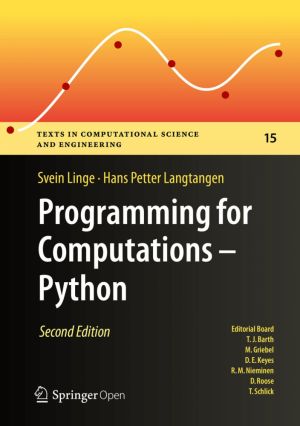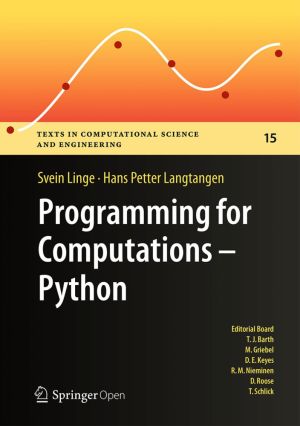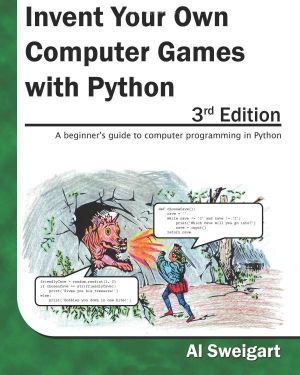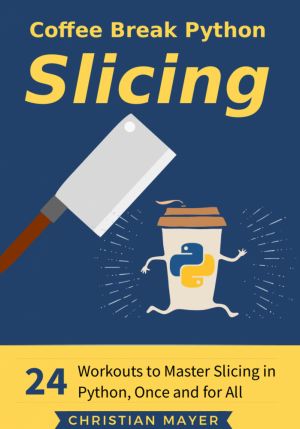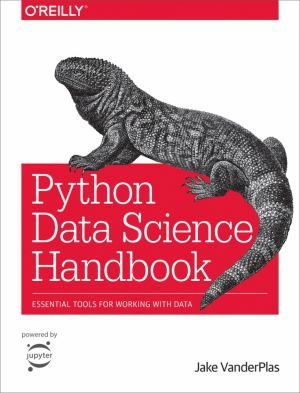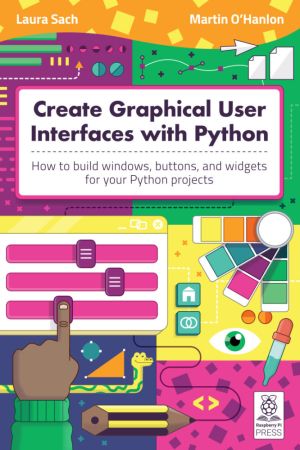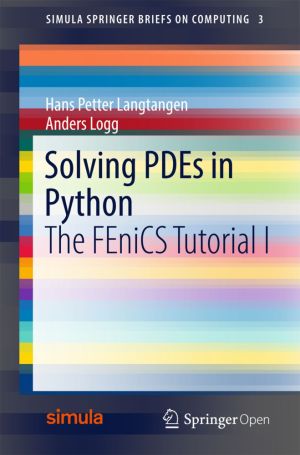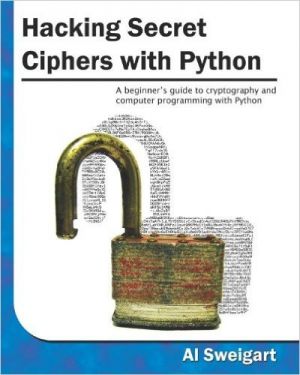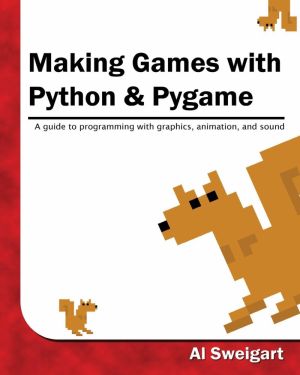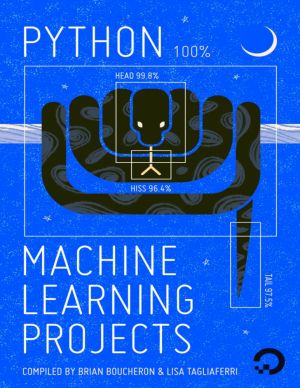PYTHON
found 112 books
by Svein Linge, Hans Petter Langtangen
This book presents computer programming as a key method for solving mathematical problems. This second edition of the well-received book has been extensively revised: All code is now written in Python version 3.6 (no longer version 2.7). In addition, the two first chapters of the previous edition have been extended and split up into five new chapte...
by Svein Linge, Hans Petter Langtangen
This book presents computer programming as a key method for solving mathematical problems. There are two versions of the book, one for MATLAB and one for Python. The book was inspired by the Springer book TCSE 6: A Primer on Scientific Programming with Python (by Langtangen), but the style is more accessible and concise, in keeping with the needs o...
by Al Sweigart
Invent Your Own Computer Games with Python teaches you how to program in the Python language. Each chapter gives you the complete source code for a new game, and then teaches the programming concepts from the examples. Games include Guess the Number, Hangman, Tic Tac Toe, and Reversi. This book also has an introduction to making games with 2D graph...
by Christian Mayer
Puzzle-based learning is an active learning technique. With code puzzles, you will learn faster, smarter, and better. Coffee Break Python Slicing is all about growing your Python expertise - one coffee at a time. The focus lies on the important slicing technique to access consecutive data ranges. Understanding slicing thoroughly is crucial for y...
by Jake VanderPlas
For many researchers, Python is a first-class tool mainly because of its libraries for storing, manipulating, and gaining insight from data. Several resources exist for individual pieces of this data science stack, but only with the Python Data Science Handbook do you get them all - IPython, NumPy, Pandas, Matplotlib, Scikit-Learn, and other relate...
by Martin O'Hanlon, Laura Sach
Add buttons, boxes, pictures and colours and more to your Python programs using the guizero library, which is quick, accessible, and understandable for all. This 156-page book is suitable for everyone, from beginners to experienced Python programmers who want to explore graphical user interfaces (GUIs). There are ten fun projects for you to c...
by Hans Petter Langtangen, Anders Logg
This book offers a concise and gentle introduction to finite element programming in Python based on the popular FEniCS software library. Using a series of examples, including the Poisson equation, the equations of linear elasticity, the incompressible Navier - Stokes equations, and systems of nonlinear advection - diffusion - reaction equations, it...
by Al Sweigart
There are many books that teach beginners how to write secret messages using ciphers. There are a couple books that teach beginners how to hack ciphers. As far as I can tell, there are no books to teach beginners how to write programs to hack ciphers. This book fills that gap. This book is for complete beginners who do not know anything about en...
by Al Sweigart
Making Games with Python & Pygame covers the Pygame library with the source code for 11 games. Making Games was written as a sequel for the same age range as Invent with Python. Once you have an understanding of the basics of Python programming, you can now expand your abilities using the Pygame library to make games with graphics, animation, a...
by Lisa Tagliaferri, Michelle Morales, Ellie Birkbeck, Alvin Wan
As machine learning is increasingly leveraged to find patterns, conduct analysis, and make decisions - sometimes without final input from humans who may be impacted by these findings - it is crucial to invest in bringing more stakeholders into the fold. This book of Python projects in machine learning tries to do just that: to equip the developers ...

